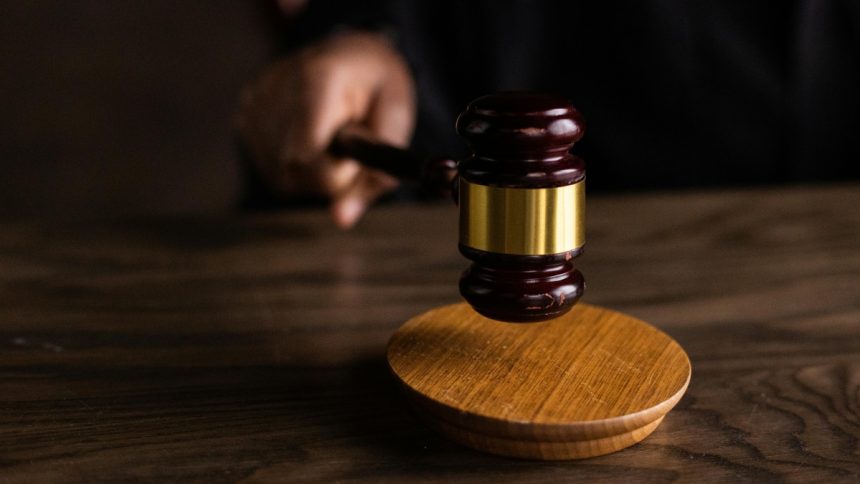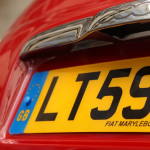The aftermath of a car accident is often a chaotic blur. Adrenaline pumps, limbs ache, and emotions run high. Amidst wreckage, a haunting accusation of blame can surface where it doesn’t belong, adding a chilling layer to chaos. In an instant, from collision victim to accused perpetrator, thrust into a whirlwind of legal worries and tarnished reputation.
In this article, we will navigate the treacherous waters of false accusations, equipping you with the knowledge and tools to fight back.
Preserve Evidence
In the aftermath of a car accident, preserving crucial evidence becomes a pivotal step when facing false allegations. Begin by documenting the scene comprehensively, capturing photographs of vehicle positions, road conditions, and any relevant signage. Obtain contact information from potential witnesses, as their testimony can be instrumental in disproving false claims.
Also, leverage technology by utilizing smartphone apps or dashcam footage, if available, to provide a real-time account of the incident. Secure police reports, medical records, and any communication related to the accident promptly. Organize this evidence methodically, creating a comprehensive timeline that can serve as a compelling defense against wrongful blame. Preserving this data not only reinforces your credibility but also establishes a factual foundation for refuting unfounded accusations.
According to Nolo, each state’s motor vehicle laws dictate driver behavior on the road. In specific situations, violating these laws creates a presumption of negligence, placing the burden on the defendant to prove their innocence. This legal concept highlights the importance of adhering to state-specific regulations to avoid potential liabilities in case of a motor vehicle incident.
Consult with a Local Attorney
Navigating the legal labyrinth of a false car accident accusation can be overwhelming. Insurance jargon, courtroom procedures, and complex legalities can leave you feeling like a lost soul in a foreign land. This is where the unwavering support of a qualified attorney becomes your guiding light.
In November 2023, troopers from the Missouri State Highway Patrol responded to a fatal two-vehicle crash on Missouri Highway 141 in St. Louis. The incident involved Victor Hezel, 93, who failed to stop at a red light, colliding with a Ford Escape making a left turn. Hezel succumbed to injuries at Mercy Hospital, while the Ford Escape driver sustained minor injuries.
According to TorHoerman Law, approximately 28% of St. Louis car accidents lead to severe injuries. Also, the St. Louis region contributes to nearly 24% of all fatal car accidents in the state of Missouri.
As demonstrated by the incident and the data, in St. Louis, where accidents are common, securing a skilled local car accident lawyer proves invaluable. A skilled local lawyer, intimately familiar with the intricacies of Missouri law, will be your champion in the fight for justice.
A car accident lawyer in St. Louis brings essential expertise, evaluating cases meticulously, navigating insurance complexities, and preparing clients for legal proceedings.
They serve as a steadfast advocate, ensuring fair compensation and protection from predatory tactics.
Collaborating with a St. Louis car accident lawyer provides localized legal insights, enhancing chances for a favorable resolution. Their expertise counters unjust accusations effectively.
Collect Witness Statements and Testimonials
Gathering witness statements and testimonials plays a pivotal role in debunking false allegations arising from a car accident. Eyewitness accounts can provide invaluable perspectives, offering unbiased narratives that contribute to the accurate reconstruction of events. Approach potential witnesses promptly, ensuring their recollections remain fresh and accurate.
Gather comprehensive statements detailing the collision and considering factors like road conditions. Include notable actions by involved parties for accuracy.
Engage in Dispute Resolution
While confronting false accusations often triggers a rush to the courthouse, remember that litigation isn’t the only path to resolving car accident disputes. Alternative dispute resolution (ADR) methods can offer quicker, less expensive, and sometimes more amicable solutions.
Mediation involves a neutral mediator facilitating direct communication, guiding both parties to a mutually agreeable settlement. This process offers control and is beneficial for those seeking closure without court formality. In arbitration, a neutral arbitrator hears arguments, providing a faster but less flexible and controllable alternative to court proceedings.
These processes often lead to a more amicable resolution, fostering a collaborative environment that minimizes the adversarial nature of legal proceedings.
Forbes notes that personal injury lawsuits typically conclude through settlements. The U.S. Department of Justice reports that merely 4% to 5% of personal injury cases proceed to trial. It underscores the importance of utilizing dispute resolution methods to navigate and resolve personal injury cases effectively.
Seeking alternative avenues can often lead to more satisfactory outcomes than proceeding to trial.
Start Preparing for Legal Proceedings
The specter of a courtroom may loom large in the face of false car accident accusations. But before the gavel meets the sound block, remember, preparation is your shield, knowledge your sword.
Approach the legal battlefield confidently by understanding the process, anticipating steps, and collaborating effectively with your lawyer. Organize relevant documents systematically for easy access, rehearse your testimony to build confidence, and stay composed during courtroom proceedings. Maintain open communication with your attorney, updating them on developments for a robust and well-prepared defense strategy.
By taking these proactive steps, you transform from a passive defendant into an active participant in your own defense. You demonstrate your commitment to the truth, your respect for the legal process, and your unwavering determination to clear your name.
Make Courtroom Defense Strategies
Crafting effective courtroom defense strategies is pivotal when confronting false allegations following a car accident. Work closely with a skilled attorney to analyze evidence, witness testimonies, and police reports, creating a clear picture for a robust defense. In negotiations with insurance companies, your lawyer becomes a staunch advocate, skillfully securing fair compensation and shielding you from predatory tactics.
Your lawyer guides you through legal proceedings, ensuring confidence and understanding in mediation, arbitration, or court appearances. Your lawyer meticulously gathers evidence, crafts persuasive arguments, and builds a watertight case to dismantle false accusations and secure courtroom justice.
Cope with Emotional Stress
Medical News Today reported that 13–21% of traffic accident survivors may develop acute stress disorder, as per the APA. Treatment aims to control symptoms and prevent worsening. Without intervention, some may progress to PTSD. Establishing a support system, which may include friends, family, or mental health professionals, becomes paramount.
Also, being wrongfully blamed for a car accident can also result in a significant emotional burden. Acknowledge and prioritize your mental well-being throughout the process. Engage in stress-reducing activities, such as mindfulness exercises or therapy, to mitigate the emotional toll. Acknowledging and addressing emotional stress boosts well-being and resilience, which is essential when countering challenges in refuting false claims from a car accident.
Navigating the Road to Justice Amidst Unjust Accusations
In the aftermath of a car accident marred by false allegations, the journey toward justice is multifaceted and demanding. As the road to justice unfolds, resilience and a comprehensive approach become invaluable. Blending legal acumen with emotional well-being aids in navigating challenges effectively. It leads to a fair resolution, reclaiming integrity amidst wrongful accusations.
Lynn Martelli is an editor at Readability. She received her MFA in Creative Writing from Antioch University and has worked as an editor for over 10 years. Lynn has edited a wide variety of books, including fiction, non-fiction, memoirs, and more. In her free time, Lynn enjoys reading, writing, and spending time with her family and friends.















